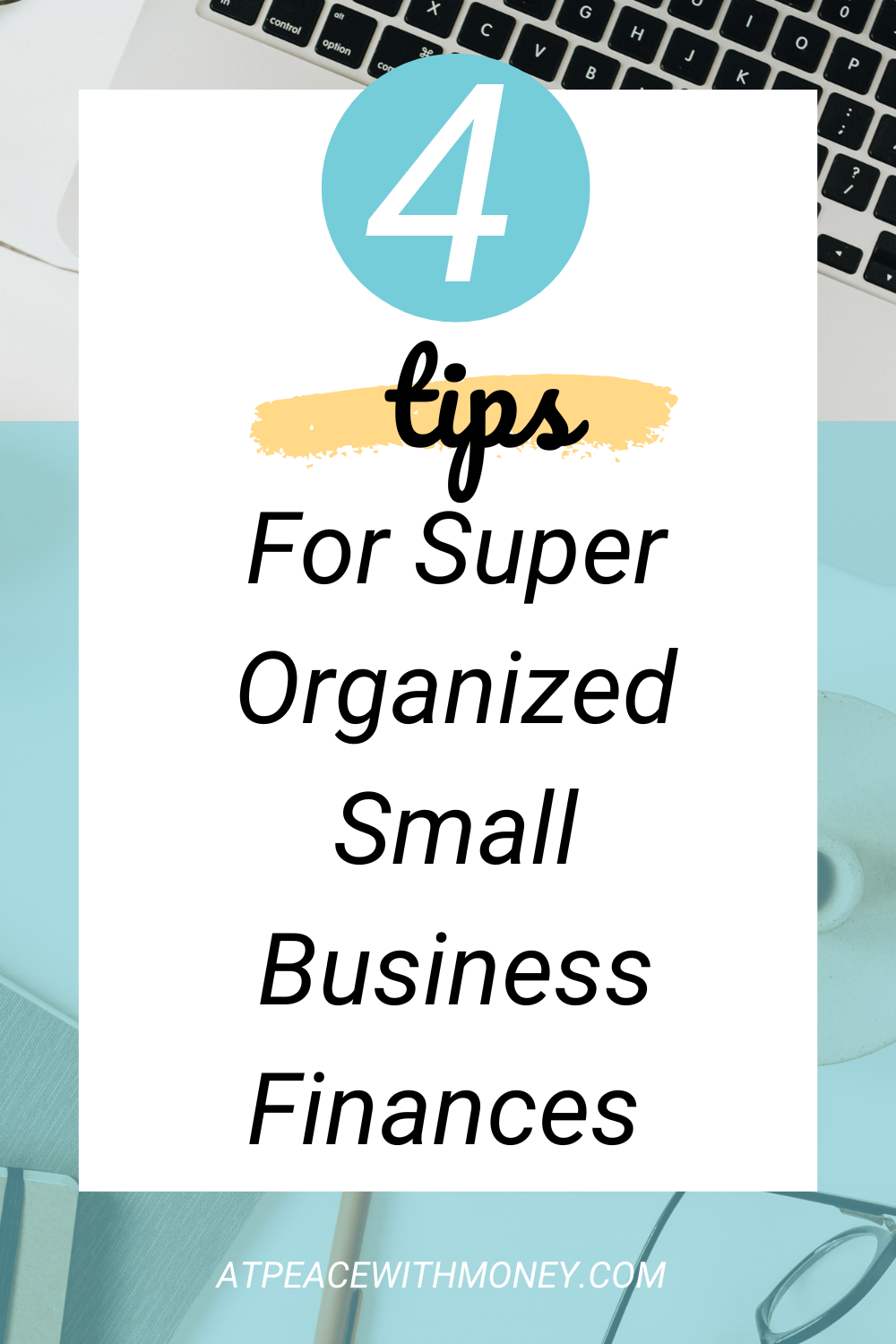How to Get Organized and Reduce Money Stress in Your Business

As a business owner, you are responsible for the finances of your business. That responsibility can come with a lot of stress. However, with proper management, the financial side of a business can become a seamless system that sustains you and your passion. The key here? Get organized.
What does getting organized look like when it comes to your business finances? It looks like solid record-keeping and the ability to look back at financial data easily. It looks like a good awareness of the money coming in and out of your business. It looks like knowing you have enough to pay yourself, pay your taxes, and run your business.
All of this can be done without the chaos, by implementing a few changes to how you do your business finances. What you need will vary depending on the type of business you run and its current financial conditions. Today, I’d like to share a couple tips on getting your business finances organized that seem to come up most often in my work with clients.
Create a Supportive Money System
Last year, I wrote a full series devoted to money-mapping, a practice you can use to visualize the flow of money in your business. Creating a money system, and a visual way to understand it, can help you recognize where the income you receive through your business is needed most, and how your personal and business finances integrate. By creating a money system that tracks every dollar (including cash) of income that you receive, you set yourself up for success. A good money system gives you an idea of the profitability of your business, so that you’re not guessing at how much you’re really making.
My work around money mapping integrates the Profit First system’s allocations idea, to help business owners set aside money for various uses in their business. These include the important things, like paying your operating expenses, getting paid, paying taxes, and saving a portion of that money in a profit account. You can read the series on money mapping here: Part I, Part II, Part III, and a follow-up article on keeping your money systems simple.
Get Prepped for Taxes
One of the big themes in my guide to getting prepped for tax time is just simply keeping your documents organized in one place. Keeping all your paper documents in one physical spot, and saving all your digital documents to a designated folder, can save you from a lot of digging and stress when March rolls around. Creating a simple organizational system for tracking these things is a great preparation step for tax season, and a definite stress-reducer.
Show Up
They say that 90% of success is showing up, and this rings true when it comes to keeping your business organized and stress-free. If you’ve been reading this blog for a bit, you’ll know I’m a proponent of having weekly “money time,” which is for you to review your financial situation and do any financial admin work that needs to get done. This time is extremely important for financial self care. Perhaps even more important than what you do during this time, is simply scheduling it in and doing it. When you make a regular habit of revisiting your finances, you will naturally start to shape them to be more organized.
Use Helpful Tools
These days, we are lucky to have many tools available that can help us stay organized in our businesses. Here are a couple that I frequently help clients integrate into their finances:
- MoneyGrit.(R) is a great tool for either personal or business use.
- Mint has fewer features, but can be really helpful for solopreneurs with few transactions, or personal use.
- QuickBooks Online is a classic and excellent for business use.
- YNAB is a tool I personally have less experience with, but a few other coaches I know use it often and recommend it.
If you enjoyed this article, you’ll probably appreciate a copy of my free e-Book, the Cash Flow Reboot Guide. Click here or below to get your free download! 













 In my last post, I put up a
In my last post, I put up a